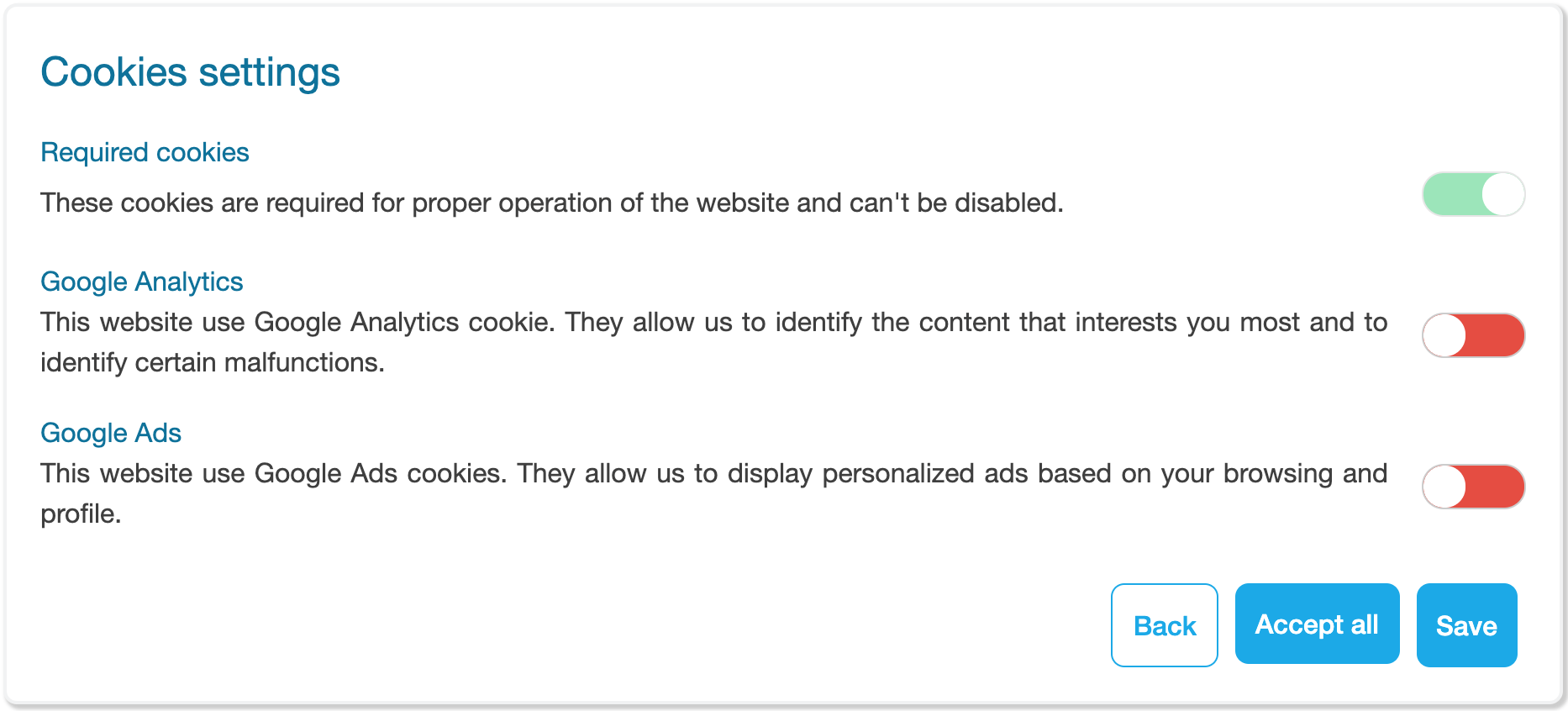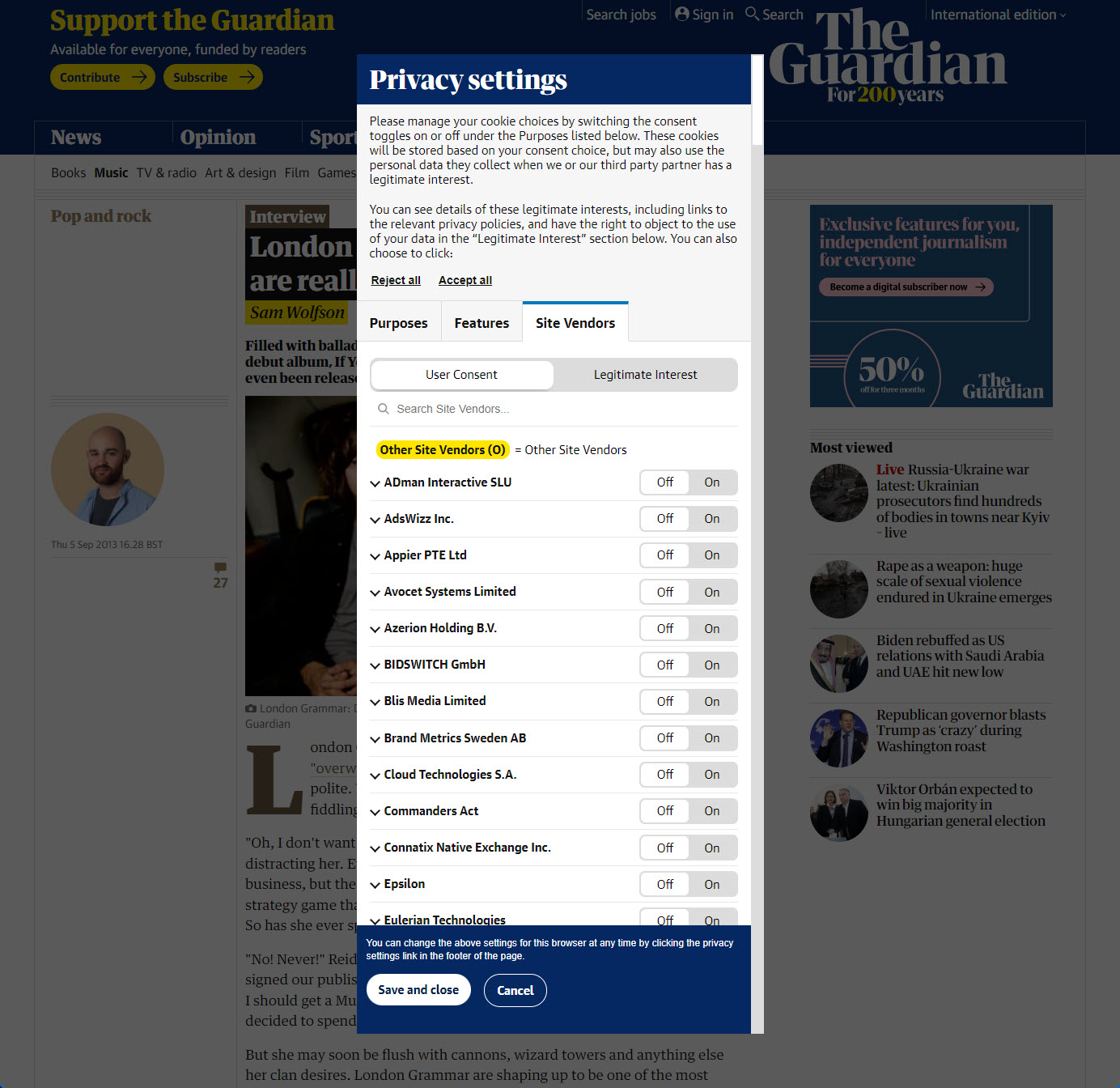Written - April 2022
The Internet is free to use, that’s a good thing, right? Okay so we all pay a monthly fee to our broadband or fibre internet service provider (ISP) and to our mobile / cellular network, but once we’re online we don’t pay for anything. It’s great that Facebook, Twitter, Instagram, WhatsApp, Google, YouTube and all the other websites we use are completely free. Yay!
Except it’s not that simple, as the companies that own these services, Meta (that own Facebook, Instagram and WhatsApp) and Google (that owns YouTube) are still making billions of dollars in profit every year, so what gives?
The problem comes in the form of a cookie, a small file that websites place on your computer or smartphone when you visit them. Many website cookies are completely innocuous, storing nothing more than website preferences or a cryptographic hash of your sign-in details to automatically sign you in to the website’s services. The problem cookies though are called trackers.

The truth is that we’re all being asked to make a trade-off. In return for getting the Internet and these services for free, we are giving over ourselves as the product, and surrendering our privacy. To give just one example, people have said that they can say something to their Amazon Alexa smart speaker, and within minutes they’re seeing adverts for that very thing on the websites they visit.
You’ll be aware of it from the cookie pop-ups that are required by law on every website across the EU, and that can be common in the US and elsewhere in the world. These can be extremely complicated, sometimes there’s no clear reject all button, forcing you to uncheck long lists of individual cookies. The reason for this is website owners are trying to force us to click the “Accept” button out of sheer frustration, as we just want to get to the website’s content.

It’s very clear then that the General Data Protection Regulation (GDPR) legislation that governs these cookie popups, and that was first adopted in 2016, is not fit for purpose, and the European Union are currently working on updated legislation to force the reject option to be equally simple to use as the accept option.
For myself I noticed that both WordPress (which powers this website) and Google had forced tracking cookies here. I got so frustrated that I installed a new GDPR cookie system in which I completely disabled the accept option. All websites could do this, but none of them do.
In and of themselves tracking cookies aren’t an evil thing, but the amount of data they gather about you as they follow you around the Internet builds up highly detailed profiles about your lifestyle, your choices, your shopping preferences, plus information about your friends, relationships, and even your secret indulgences and your movements around your country and the world. If a government tried to collect this kind of detailed data there would be uproar, so why do we allow advertising companies to do so?
It’s fairly straightforward to block third-party tracking cookies. I have published a guide to securing your privacy in Microsoft Edge, but if you open Settings, navigate to Cookies and site permissions, and then click Manage and delete cookies and site data, you will find a switch to block third-party cookies.
In Google’s Chrome browser open Settings and click Security and privacy and then Cookies and other site data to find a couple of switches for blocking them. You’ll be unsurprised to hear that none of these options are enabled by default. Some web browsers exist though to really enforce strong privacy, and the Brave web browser is a good example of this.
In short, tracking cookies are just not good for us and you should certainly block them. We can only hope that governments legislate more to help us protect our privacy, but for as long as major internet firms and advertising companies have deep pockets to pay for lobbyists, it’s unlikely to happen. This means we all have to look after ourselves, and each other.


